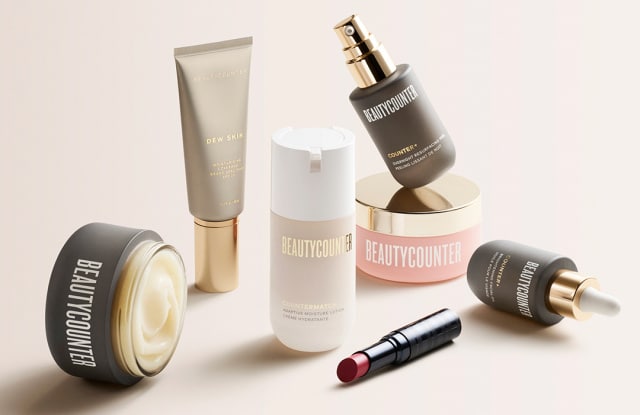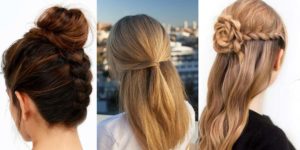Clean beauty sales are continuing their upward trend, in spite of both the coronavirus pandemic and its following economic downturn.
According to NPD, Prestige clean beauty is up 11 percent this year despite beauty’s 14 percent decline. “Clean beauty is about safety. And today, there is nothing people are more concerned about than safety,” said Larissa Jensen, NPD’s vice president and beauty industry adviser.
Brands showing a commitment to product safety, as well as an adherence to the principles of “clean” beauty (no toxins or unsafe synthetics) are reporting optimistic sales outlooks. One of the earlier pioneers of the movement, Beautycounter, sees the shift as part of a long-trending rise, only accentuated by the pandemic. “Clean beauty has been trending upwards. In the most recent few weeks, Americans now more than ever are focused on the safety of themselves and their families,” said Gregg Renfrew, founder and ceo of Beautycounter. “People are increasingly thinking of wellness and their skin-care regimens linked to their health; it’s at the forefront of the consumer’s mind-set.”
Beautycounter’s skin-care and body-care lines have outperformed the brand’s other products since the start of the pandemic, Renfrew said. “People are careful with money, but they are unapologetic in wanting to take care of themselves,” she said. “Our consumable products, body scrubs and cleansing balms are also holding firm.”
Renfrew also thinks the migration to clean beauty is reflective of a long-term shift in consumer attitudes, not a one-off caused by the pandemic. “I don’t think there’s going to be a moment in time where the consumer says, ‘Please put those known carcinogens back in products I put on my body.’ All ages recognize the vulnerability of their health,” she said. Renfrew also believes the shelter-in-place orders’ impact on the environment will place more pressure on brands to service an increasingly eco-conscious consumer.
Other clean brands have yet to report the sales declines plaguing the rest of the industry. “We haven’t seen any attrition at all; our sales have been surprisingly resilient in the channels that are open,” said Oliver Sweatman, cofounder of skin care brand Ursa Major. Despite retail partners such as Credo Beauty closing physical locations, Sweatman noted an increase in e-commerce sales. The only exceptions include the brand’s facial wipes, one of its hero products, which are geared toward exercise and travel — both limited by shelter-in-place orders.
Clean skin-care line Herbivore reported a similar uptick in sales of skin and body products, despite channel closures. “We have definitely felt the effects of the coronavirus with our retail partners closing, but from a digital perspective, we’re seeing triple our numbers,” said Alex Kummerow, cofounder of Herbivore. The brand is repurposing budget to focus on social content and marketing. It has also seen some unexpected spikes: Herbivore’s Bamboo Charcoal and Pink Clay Cleansing Bar Soaps are two of its five top-selling stockkeeping units, despite not having launched a soap since 2011. Masking is also up, Kummerow said, as are bath salts and soaks.
Jaime Schmidt, founder of Schmidt’s Naturals, communicated a similar approach from her customers, who are focusing their buying power behind practical, essential products. “It’s about practical products you can trust, which is a sweet spot between heritage brands and more indie ones,” Schmidt said.
Vintner’s Daughter, the cult-favorite clean beauty brand based in Napa, Calif., says its first product, Active Botanical Serum, is outselling its younger counterpart, Active Treatment Essence, which launched last year. The brand’s founder, April Gargiulo, said Active Treatment Essence has been gaining momentum since its launch and has only had a steeper ascent since the onset of the pandemic.
Gargiulo sees the correlation of clean beauty and safety concerns, but she also attributes it to a larger cultural shift toward minimalism. “What this pandemic has done is strip away a lot of the artifice in our life every day,” she said. “You want to fill that with things that have a deeper relationship with our planet and the resources in our planet.”
#beauty #cleanbeauty #following #beautybrands
#cleanbeauty #beautyblender #loss #clean #beautygram #beauty #following #beautybrands





